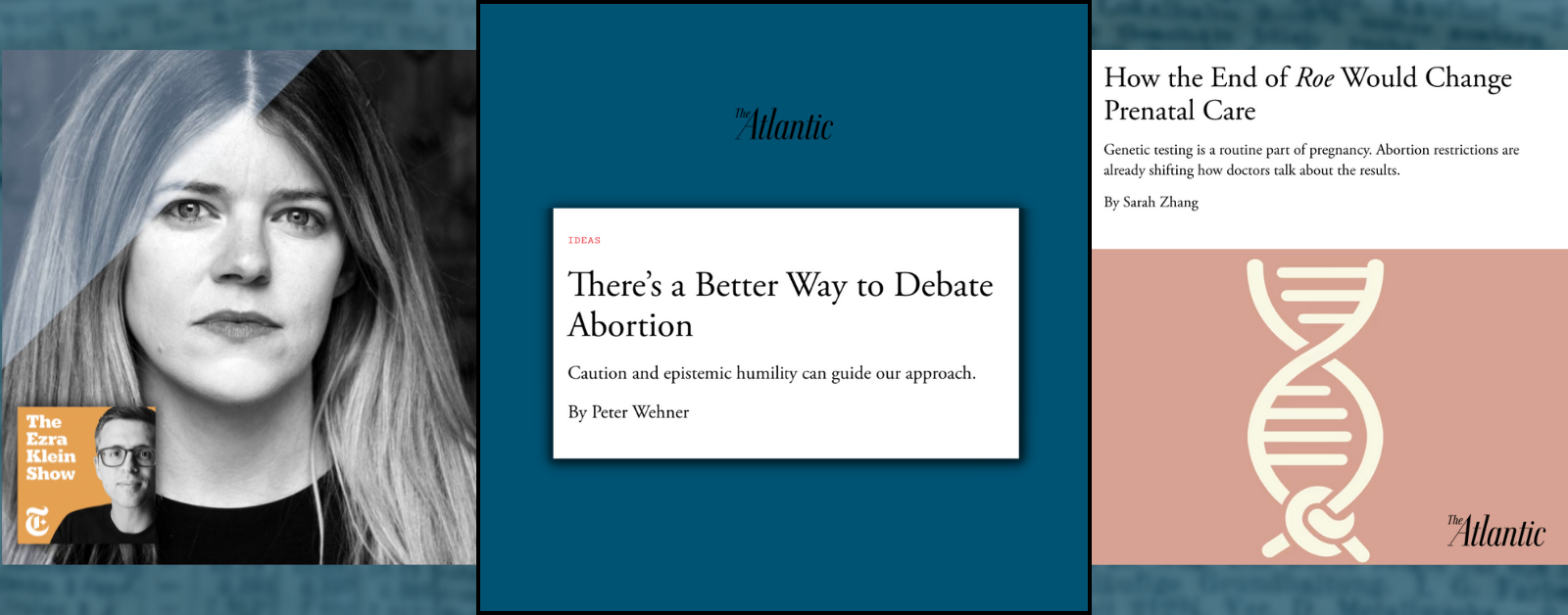Quick Links:
- There’s a Better Way to Debate Abortion by Peter Wehner | THE ATLANTIC
- How the End of Roe Would Change Prenatal Care by Sarah Zhang | THE ATLANTIC
- The Ethics of Abortion | EZRA KLEIN SHOW
In the weeks since the leaked draft of the Supreme Court opinion that could overturn Roe v. Wade, many of us have been revisiting our thoughts, questions, beliefs, and emotions around abortion. And for all the moral clarity that the far right and far left seem to have around this issue, it seems that most of us—whether we classify ourselves as pro-life or pro-choice or something else—have more questions than we do certainty and more compassion than condemnation when it comes to this issue.
Peter Wehner, a senior fellow at the Trinity Forum, wrote an essay in the Atlantic that underscores the confusion—and the desire for a better way—that many of us feel. Moreover, he expressed how that confusion could lead us to a place of conversation and care:
“No matter one’s position on abortion, each of us should recognize that those who hold views different from our own have some valid points, and that the positions we embrace raise complicated issues. That realization alone should lead us to engage in this debate with a little more tolerance and a bit less certitude.”
Wehner doesn’t use this word, but his essay points to the liminal status of a fetus, a being who cannot survive independently of another being and who also becomes a human person, deserving of all the rights of persons under the law.
Wehner concludes:
“with abortion, we’re dealing with an awesome mystery and insoluble empirical questions. Which means that rather than hurling invective at one another and caricaturing those with whom we disagree, we should try to understand their views, acknowledge our limitations, and even show a touch of grace and empathy.”
Perhaps a way of limitations, grace, and empathy could lead us to care for both mothers and babies by following a way of compassion rather than condemnation.
(I also appreciated Ezra Klein’s conversation with Kate Greasley about the ethics of abortion and Sarah Zhang’s essay about how a reversal of Roe could affect prenatal care.)
More with Amy Julia:
- Roe v. Wade: Questions to Ask About the Supreme Court’s Draft
- Abortion and People With Disabilities
- Texas’s Abortion Law and Down Syndrome
- Friday Favorites and AJB Recommends
If you haven’t already, you can subscribe to receive regular updates and news. You can also follow me on Facebook, Instagram, Twitter, Pinterest, YouTube, and Goodreads, and you can subscribe to my Love Is Stronger Than Fear podcast on your favorite podcast platform.




